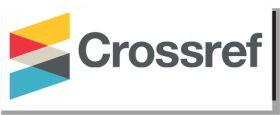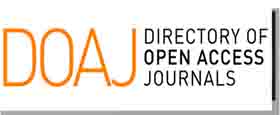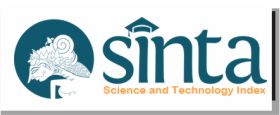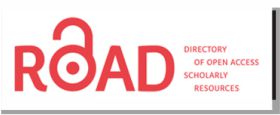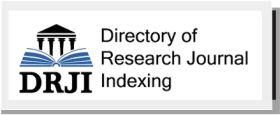Building Human Resources Characteristics in Public Services: A Phenomenological Study on Civil Servants
Abstract
Full Text:
PDFReferences
Region, P. (1999). Law of the Republic of Indonesia Number 22 of 1999, concerning Regional Government (pp. 1–47).
Dewi, ARCA, & Nihayati, BZ (2024). Analysis of the Character of State Civil Apparatus (ASN) Reviewed from Interpersonal Communication. Nusantara Innovation Journal, 2(2), 153–167. https://doi.org/10.70260/nij.v2i2.36
Fajar G, M Rizan, AW (2023). Strengthening the character of state civil servants as the backbone of government (First). https://repository.penerbiteureka.com/media/publications/566928-penguatan-karakter-aparatur-sipil-negara-31f56f10.pdf
Herawati. (2021). Implementation of the policy of appointing state civil servants in structural positions in Indragiri Hilir Regency, Riau Province. MAP (Journal of Management and Public Administration), 4(1).
Indonesia, PR (1945). The 1945 Constitution of the Republic of Indonesia (Vol. 105, Issue 3, pp. 129–133). https://webcache.googleusercontent.com/search?q=cache:BDsuQOHoCi4J:https://media.neliti.com/media/publications/9138-ID-legal-protection-of-children-from-dangerous-content-in-print-and-ele-media.pdf+&cd=3&hl=id&ct=clnk&gl=id
Civil Service, PP (2021). Government Regulation of the Republic of Indonesia Number 94 of 2021 Concerning Civil Servant Discipline. Angewandte Chemie International Edition, 6(11), 951–952., 2013–2015.
Ludfi, A., Wardana, KW, & Nugroho, J. (2024). Agile Leadership in Times of Uncertainty: Applying AGILE Characteristics for Competitive Advantage. Effector, 11(2), 51–60. https://doi.org/https://doi.org/10.29407/e.v11i2.23716
Muniroh, M., Hamidah, H., & Abdullah, T. (2022). Managerial implications on the relationship of digital leadership, digital culture, organizational learning, and innovation of the employee performance (case study of PT. Telkom Digital and Next Business Department). Management and Entrepreneurship: Trends of Development, 1(19), 58–75. https://doi.org/10.26661/2522-1566/2022-1/19-05
Nawawi, Z. (2020). Government Management (Vol. 4, Issue 2). RajaGrafindo Persada. https://www.google.com/search?client=firefox-bd&q=13.+Zaidan+Nawawi%2C+Government+Management%2C+PT.+Raja+Grafindo+Persada%2C+Jakarta.
Nurjanah, Siti, Vina Febiyanti, A. Wahtu. (2017). The Influence of Transformational Leadership, Job Satisfaction, and Organizational Commitment on Organizational Citizenship Behavior (OCB) at the Inspectorate General of the Ministry of Education and Culture. Music Therapy as Management of Anxiety in Childbirth, NO.3(3), 1 of 6. https://doi.org/https://doi.org/10.1080/23311975.2020.1793521
President of the Republic of Indonesia. (2004). Law of the Republic of Indonesia Number 32 of 2004, Concerning Regional Government. In Metallurgical and Materials Transactions A (Vol. 30, Issue 8).
President of the Republic of Indonesia. (2023). Law of the Republic of Indonesia Number 20 of 2023 Concerning State Civil Apparatus. 202875, 1–44. https://peraturan.bpk.go.id/Details/269470/uu-no-20-tahun-2023
Rahman, A., & Bakri, R. (2019). Arrangement of State Civil Apparatus (ASN) Management through Dynamic Governance. Jurnal Konstituen, 1(1), 1–22. https://doi.org/10.33701/jk.v1i1.309
Rahmatullah, Dedi, H. anwar. (2022). The Role of Human Capital in Eradicating Corruption: A Phenomenological Study at the Corruption Eradication Committee. In first.
Republic of Indonesia. (2014). Law of the Republic of Indonesia No. 5 of 2014 concerning State Civil Apparatus. 1–104.
Santoso, T., & Dewi, MP (2019). Ethics of State Civil Apparatus in Building Good Governance. Transparency: Scientific Journal of Administrative Science, 2(2), 179–187. https://doi.org/10.31334/transparansi.v2i2.648
Yanti, RRT, Mulyatini, N., & Herlina, E. (2018). The influence of self-actualization and appreciation needs on employee work performance (A Study on Ciamis Resort Police). Business Management and Enterpreuner Journal, 1(4), 133–146.
DOI: https://doi.org/10.31334/bijak.v22i1.4752
Refbacks
- There are currently no refbacks.
Copyright (c) 2025 Majalah Ilmiah Bijak

This work is licensed under a Creative Commons Attribution-ShareAlike 4.0 International License.
View My Stats
ISSN 1411-0830 (Media Cetak) 2621-749X (Media Online)
Email : [email protected] / [email protected]
Website: http://ojs.stiami.ac.id/index.php/bijak/index
INDEKS BY:
|









1.png)

